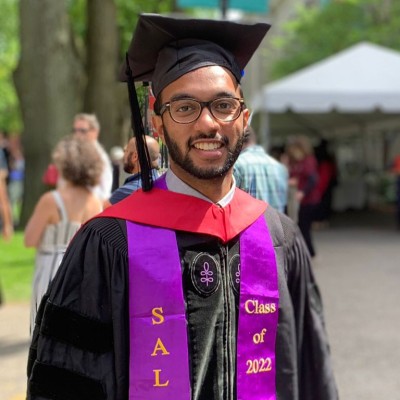
Master of Arts – MA, Political Science
Bachelor of Arts – BA, Political Science and Government
Law Clerk
Assistant US Attorney
Dallas, Texas
As a law clerk, I help my Judge manage his (very busy!) docket. Each federal judge at the district court level handles hundreds of cases on his own. Law clerks are generally fresh law school graduates who work for a judge for a 1 or 2 year term. Each judge has slightly different internal processes, but the typical duties of a law clerk include: (1) tracking the progression of cases and motions on a daily or weekly basis; (2) briefing the judge on ripe motions; (3) conducting legal research; (4) examining the factual records presented by the parties; and (5) drafting orders and opinions in line with the judge’s instructions. I enjoyed having the opportunity to be a generalist for a year and engaging with legal issues across the spectrum. I’ve also learned how to become a better attorney by observing the way lawyers, good and bad, practice in our court.
As an Assistant United States Attorney, I will be working in the Affirmative Civil Enforcement unit. This unit brings cases (primarily using the False Claims Act) to address fraud being perpetrated against the United States. AUSAs work with the relevant agencies to investigate these fraudulent schemes and prosecute cases to recover taxpayer funds that have been misappropriated.
To keep this post brief, I’ll give three examples of ways that I’ve benefited from my EPPS education.
First, my EPPS education helped build my ability to think critically about different topics. In all of my classes, professors pushed us to analyze issues from different angles and challenged our perspectives. This skill is absolutely key for lawyers who have to think through every part of a problem and come up with a solution.
Second, learning about political institutions helped me understand the way the law develops. One of the unfortunate things about the traditional law school curriculum is that it rarely considers the politics (e.g. interest groups, lobbying, electoral politics) that lead to the law’s development. The law is the end result of politics. I think it’s very important to have a holistic perspective of why things are the way they are. Furthermore, I learned a lot about the different institutions that make up the legal system by interpreting and enforcing laws.
Lastly, my education in EPPS gave me confidence in my skills and abilities. As a new lawyer, it is important to believe in yourself. My professors and peers always supported me throughout my time at UTD. Impostor syndrome is common in highly competitive fields, but I always believed that I could handle any challenge that came my way. That belief wasn’t something that grew solely from my own efforts. Having people in my corner who would always affirm my ability to overcome obstacles helped me develop the resilience that I need in my professional life.
I am still in touch with a number of classmates from my time at UTD. Most of them were fellow teammates on law-related competition teams (mock trial or mediation), and when we’re all in town, we try to catch up over lunch or dinner. We made so many great memories during our time together which has helped us maintain that bond even after graduating.
I think every current EPPS student should think about how they can build long term skills during their educational journey. Many of the habits that I began building as an undergraduate have led to my success as a law student and a lawyer. There is no better time to start your self-development than right now.